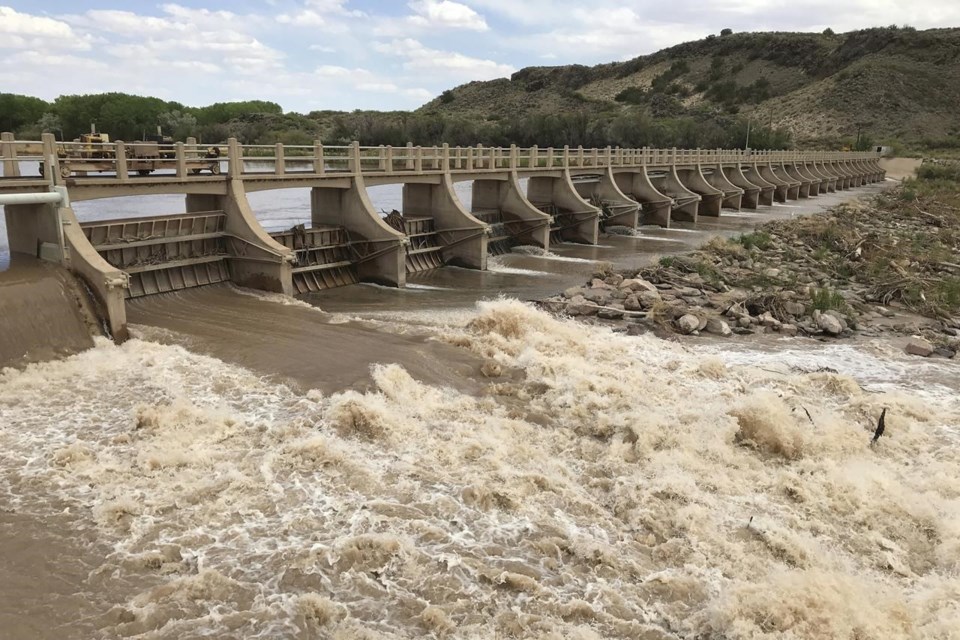ALBUQUERQUE, N.M. (AP) — Federal water managers have more room to breathe this spring as two Southwestern rivers that provide New Mexico and Texas with drinking water and irrigation supplies are seeing the benefits of record snowpack and spring runoff.
Forecasters with the National Weather Service delivered the good news Tuesday for water managers, cities and farmers as federal officials rolled out operating plans for the Rio Grande and the Pecos River.
The mountain ranges in southern Colorado and northern New Mexico that serve as headwaters for the two rivers last winter saw nearly double the snowpack of historic averages, resulting in runoff that will provide a major boost to reservoirs.
And even more of that snowmelt will reach streams and rivers since soil moisture levels were able to recover last summer during what was one of the strongest monsoons the region had seen in 130 years.
“This is really good news for us because one of the big things that’s been killing water supply for the last 10, 15 years is really dry soils soaking up a lot of that runoff before we could ever get any of it. That is not going to be the case nearly as much this year,” said Andrew Mangham, a senior hydrologist with the National Weather Service. “We’re going to have a much more efficient runoff coming out of this.”
The same story is playing out around the West. In California, most of that state's major reservoirs were filled above their historical averages at the start of spring thanks to one of the massive snowpack in the Sierra Nevada. In neighboring Nevada, the snowfall was so overwhelming that the final day of the high school ski championships had to be cancelled.
Many of the officials gathered for Tuesday's river briefing were combing their collective memories, trying to recall when they last saw hydrology graphs this favorable.
“We’re in better shape than we’ve been for a real long time,” Mangham said.
New Mexico's largest cities that rely on diverted water from the San Juan and Chama rivers are expected to get a full allocation this year — the first time since 2019.
The Carlsbad Irrigation District on the southern end of the Pecos River opted to allocate a bit more to farmers this year due to the increased runoff.
“With the snowmelt coming in and still the chance for the monsoon season, things are looking pretty good,” said Coley Burgess, the irrigation district's manager.
Still, he said farmers have had to be economical about how they use what amounts to just a little over half of a full allotment. Some have left fields unplanted so they can shift their share of water to their best alfalfa crops.
On the Rio Grande, managers say they have enough water stored in Elephant Butte — the largest reservoir in New Mexico — to avoid restrictions that prevent storing water in some upstream reservoirs. Under a water sharing agreement with Colorado and Texas, New Mexico is required to deliver a certain amount to Texas each year.
The states also are tangled up in litigation over management of the Rio Grande that is pending before the U.S. Supreme Court. A special master is considering a proposed settlement that would resolve the decade-long fight.
Officials with the U.S. Bureau of Reclamation in New Mexico said whether the state can keep enough water in Elephant Butte later this year will depend on the monsoon season.
Farmers across southern New Mexico and in West Texas will be crossing their fingers, too.
Susan Montoya Bryan, The Associated Press



